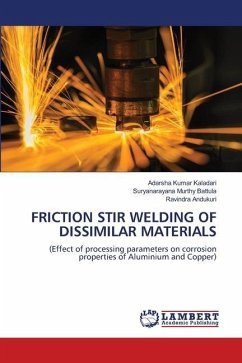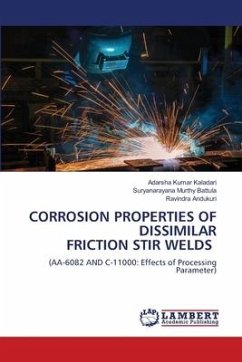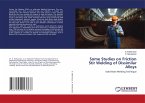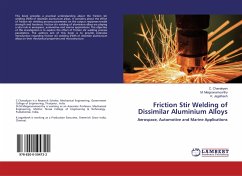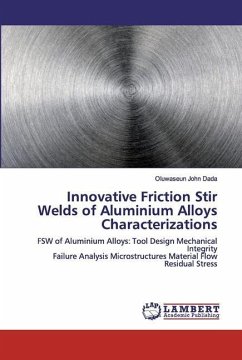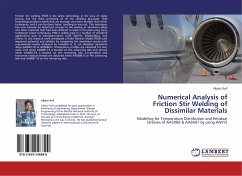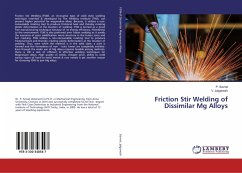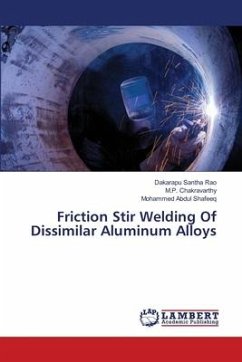The primary objective of this book is to make it available to students, researchers, and those who are working on case study projects. Friction stir welding (FSW) is a newer solid-state joining technology. This joining technique is low-energy, eco-friendly, and versatile. It is especially useful for joining high-strength aerospace aluminium alloys and other metallic alloys that are difficult to join using conventional fusion welding. FSW is regarded as the most significant advancement in metal joining in the last decade. Friction stir processing (FSP) was recently developed for the metallic material microstructural modification. The friction stir welding technique was used to join dissimilar metals, aluminium alloy (AA6082) and commercially pure copper (C11000) plates of 6 mm thickness. The welds were created by varying the rotational speed from 600rpm to 1200rpm and the feed rate from 50mm/min to 300mm/min. The resulting microstructure and corrosion properties of the welds were investigated.
Bitte wählen Sie Ihr Anliegen aus.
Rechnungen
Retourenschein anfordern
Bestellstatus
Storno

